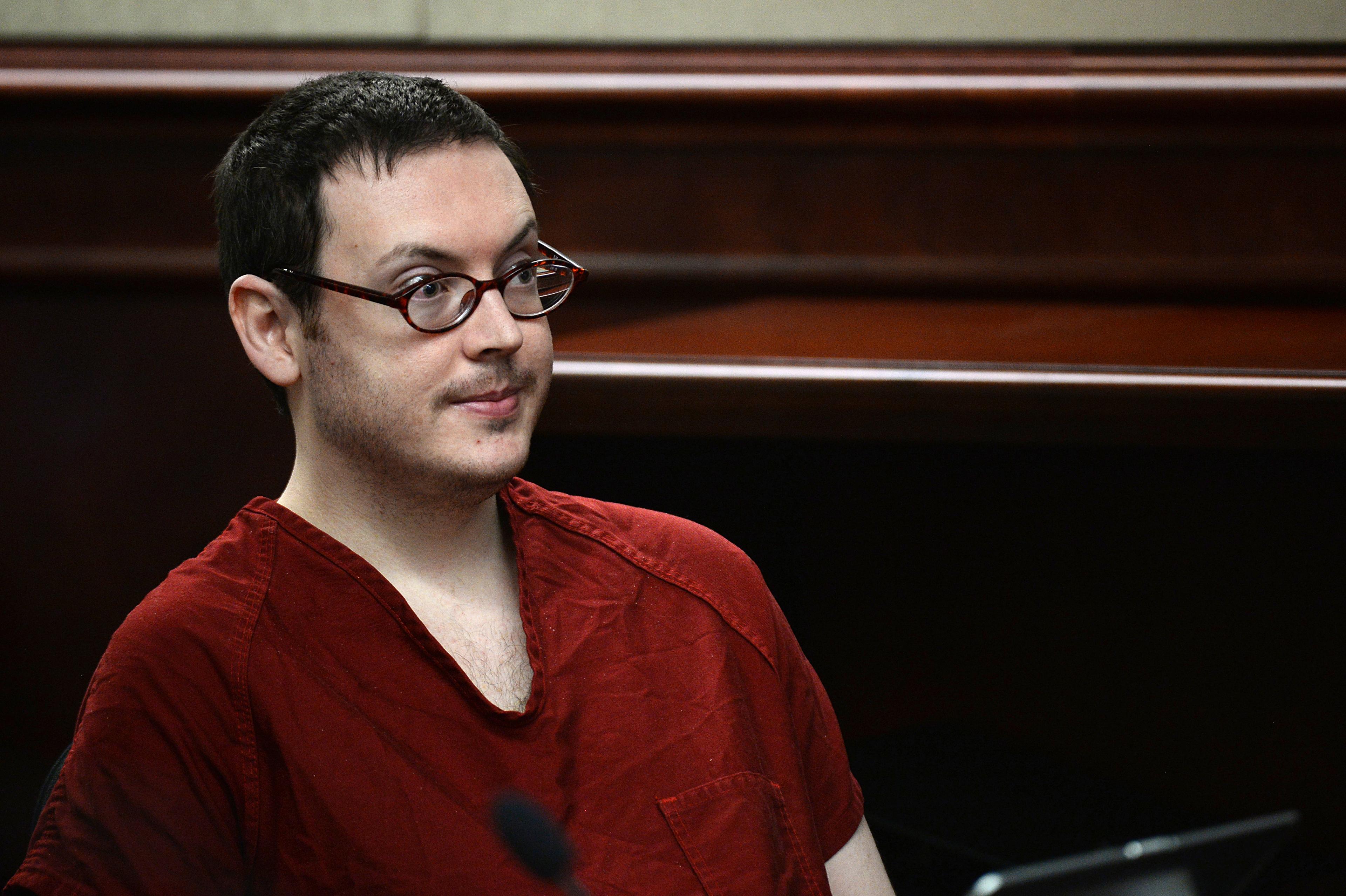

Family members and victims of the 2012 Aurora theater shooting are talking about their loss and grief this week, providing victim impact statements during the formal sentencing hearing for James Holmes, the convicted gunman. This process marks the final phase of the months-long trial.
The primary purpose of the hearing is to sentence Holmes for the rest of the charges against him. These are mostly attempted murder charges for all the people he wounded. The judge has discretion within a range in this regard. The total will add thousands of years to the 12 consecutive life sentences Holmes is already facing.
This hearing is made up of testimony from victims. That’s ostensibly to persuade judge to impose the maximum penalty against Holmes. But it's also symbolic, a final chance for victims to put their pain on official record. And unlike the death penalty portion of the trial, which limits the number of impact statements so as not to prejudice the jury, this hearing is open to any victim who wants to speak. And a lot of them do. We could be hearing from around 100 people by the time this is over.
The stories are very personal and are from a wider range of people than we have heard from in the past. Kristen Cowden tried to describe the grief her father’s murder has caused her over the past three years.
"The same suffering I feel when I think of how my sister preserves the smell of my dad’s favorite tee-shirt, tightly rolled in a plastic bag," she said. "I still don’t want to believe that he won’t be there in future, to hold his grandchildren in his arms, to support his family through the thick and thin of life."
Maria Carbonell was in the theater that night with two of her young children. They were physically uninjured, but obviously have suffered a lot.
"As a mother I witnessed my children curled up on a concrete floor in fear, and terror, and I was powerless,” she said.
Some of the victims also shared their feelings about the trial itself. There was a lot of praise for how the judge handled things, but we also heard from several who vented their frustration that the jury didn't impose the death penalty.
In one striking moment, Judge Carlos Samour responded quite forcefully to one of those statements, from a woman whose daughter was shot.
“You can't then claim there was no justice because there wasn't the outcome that you were expecting,” Samour said. “And you can't say the jury didn't value the lives of the victims as much they valued the life of the defendant.”
Samour isn't the only official showing a more personal side now that things are nearly over. First responders are also addressing the court at this hearing, offering a glimpse into how the attack has changed the lives of those who worked at the theater that night.
The Aurora Police Department was under a gag order about the crime all through the course of the trial, so we haven't really heard these accounts before. Cmdr. Mike Dailey from the department told the court that he still relives the events of that night every time he drives past the theater.
"I still have images of hurt and wounded people leaving the theater," Dailey said. "Hundreds more in the parking lot in shock."
"Members of our department suffer from a number of problems: depression, alcohol abuse. We have marital problems going on, and mental and physical health problems, all attributed to this event,” the commander said. “We are anticipating further and ongoing issues in our department, including the possibility of suicide by our own officers.”
This hearing will end with the judge handing down sentences for all of the more than 150 charges of murder, attempted murder, and explosives. After that, it's in the hands of the Department of Corrections. There's no strict timeline yet.
At some point, Holmes will be transferred to the Denver intake center, where he will go through physical and psychological evaluations to determine where he should be placed. Depending on his mental state, he could go to one of a few psychological treatment centers, or to one of the state's general facilities, or even be sent out of state. It’s all at the correction department’s discretion.








